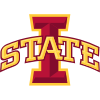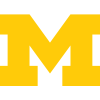Power Five may allow negotiations with MLB
The Power Five conferences are considering letting agents negotiate with Major League Baseball teams on behalf of high school and college baseball players. That’s one of the NCAA autonomy proposals submitted last week by the Big 12 to be voted on at the NCAA convention in January.
NCAA autonomy allows the 65 schools from the ACC, Big Ten, Big 12, Pac-12 and SEC, plus Notre Dame, to create their own legislation that the rest of Division I can elect to follow.
CBS Sports requested autonomy proposals from the ACC, Big Ten, Pac-12 and SEC that were not immediately provided. The Big 12 is submitting six proposals, including the first autonomy proposal that would allow college athletes better access to agents to assist their professional futures.
Among the Big 12 proposals:
* Allow agents to negotiate for baseball players: This would finally let baseball prospects have an agent in the negotiating room with Major League Baseball teams — something that widely occurs now against NCAA rules. For years, the NCAA’s “no agent” rule has severely impacted the eligibility of many college baseball players. Countless players have been suspended or lost their eligibility entirely because their “advisers” got caught negotiating with teams, even though that’s the industry norm.
Under the Big 12 proposal, “you could have your parents and some type of representation to help you through that process,” said David Flores, Big 12 director of student-athlete support services. “The issue is once that process ended, that representation would have to end immediately. There couldn’t be any type of agreement for future representation. This is solely to have representation on the front end.”
So agents would work pro bono with the hope of landing the player at a future date? “That would be the thinking,” Flores said.
Baseball players are currently allowed to have an adviser to discuss the merits of a proposed contract. But the NCAA instructs players that the adviser can’t directly contact pro teams. In reality, it’s widely known that agents often do negotiate for college baseball players, who lie to the NCAA when they’re asked about it.
The Big 12 proposal is only for baseball, which has arguably the most complicated draft process of any sport. Players are MLB draft-eligible if they have graduated from high school and yet to attend college or junior college; completed their junior or senior years at a four-year college or are at least 21 years old; and play in junior college, regardless of how many years of school they have completed. Baseball players can attend (or return to) college if they don’t sign professionally. If the Power Five agent rule passes, it will be interesting to see whether football and men’s basketball allow more agent involvement for players in the draft process.
* Let schools pay for up to four family members on a recruit’s official visit: This is an all-sports proposal that would increase the number to four family members per prospect. Currently, a prospect and a parent/guardian can have their transportation, lodging, three meals per day and “reasonable” entertainment expenses paid for on an official visit. This proposal falls in line with the recent change allowing parents to be reimbursed up to a certain amount on travel to the College Football Playoff or Final Four.
* Give unchallenged authority to doctors on player medical decisions: This is a sore subject for the Big 12, which argued last year that a new concussion safety committee that reviews protocol for Power Five schools didn’t go far enough. The new Big 12 proposal would require Power Five schools to create a structure that gives a team physician or medical director unchallenged authority to determine manage medical and return-to-play decisions. Like anything else related to NCAA medical care, though, there’s no enforcement mechanism attached to this proposal — at least not yet. “We haven’t dived that deep into it yet,” Flores said. “We didn’t place anything in the proposal with any kind of enforcement arm.”
 |
Iowa State
|
|
After former Iowa star football star Tyler Sash died this week at the age of 27, ex-Iowa State player Jeff Woody wrote a powerful piece that anyone who works in college sports should read. Woody is best known for scoring the biggest touchdown in Iowa State history in 2011 when the Cyclones upset No. 2 Oklahoma State. In his piece, Woody said he has “a good idea as to what was going on in (Sash’s) soul … and I was guilty of stoking the flame. I have felt what he felt too, and I had to deal with it the way I knew how.” Woody said he regretted making “unflattering” and “downright mean” remarks to friends about Sash and his personality when he was alive and didn’t try hard to get to know him. “And I regret that more than I can explain right now,” Woody wrote. Woody described the public’s attention on college athletes as a “two-bladed sword” that can help them but also puts them under a microscope where “you are not allowed access to forgiveness that follows many people like a shadow. In a state like Iowa, this is especially true. We have no one else to watch, so the college kids are what we watch. And we tell them how good they are. And we tell them about how important they are. And we tell them about how much we love them. And we tell them how much they mean to the colors they wear and the state they represent. The only issue with that? We aren’t talking to them. We are talking to a persona of them.” Woody said he was lucky to have a wife who told him he has more value than simply being an athlete. “I just wish I was able to talk to Tyler now to tell him what he was as Tyler, but no one ever will,” Woody wrote. “My plea is that in the next encounter with an athlete of any level, ask them about their sport, sure, but ask them about what makes them, them. The next time you think about calling a quarterback a ‘stupid son-of-a-bitch’ because he displeased you with a bad pass, remember what you are telling them.” |
|
 |
NCAA
|
|
Attorneys for the NCAA and Football Bowl Subdivision conferences argue that US District Judge Claudia Wilken’s class-certification analysis in the Ed O’Bannon case means she should deny class certification in two other lawsuits, including the Jeffrey Kessler case. The NCAA and conferences took that position in court documents filed this week in anticipation of the Oct. 1 class certification hearing for the Shawne Alston and Martin Jenkins (i.e., the Jeffrey Kessler lawsuit) cases. The lawsuits seek injunctions that would essentially allow schools a free market to pay FBS football players and Division I men’s and women’s basketball players. At this stage, the NCAA and conferences are trying to show conflict among players so the classes won’t be certified by Wilken, who is the judge in all three of these cases. The NCAA and conferences pointed out that Wilken did not certify a damages class in O’Bannon over the use of players’ names, images and likenesses because of conflicts of interest within the class. Wilken did certify an injunctive class “only after concluding that intra-class conflicts did not exist for the unique reason (not present here) that the group license sought in O’Bannon would not cause class members to compete against one another for compensation,” the NCAA and conferences wrote. The NCAA and conferences state the injunction sought by Alston and Jenkins is “markedly different” from the injunction sought in O’Bannon. In Alston and Jenkins, the injunction will cause athletes to compete against each other for money and, depending on the differences in the value of each class member’s individual talent, some class members will be harmed by the removal of the NCAA’s no-payment rules, the NCAA and conferences say. Also, they say the plaintiffs’ attempt to certify two “duplicative cases is inherently improper,” and Wilken is empowered to dismiss, stay or enjoin a duplicative action, or to consolidate both actions. |
|
 |
Michigan Wolverines
|
|
Michigan has the largest social media fan base, the SEC has the most socially engaged conference in America, and the Pac-12 generates the most intentional buzz. Those were the results of a recent analysis by Adobe Digital Index. The study measured social media engagement data through data such as mentions, page likes and followers on various social media sites, including Facebook, Twitter, Instagram, Tumblr, Flickr and YouTube. The analysis was conducted from June through August. Michigan was No. 1 in socially engaged fans with 1.7 million fans, including 323,000 Twitter followers. Michigan coach Jim Harbaugh became a Twitter sensation in the offseason. The rest of the top 10 in order: Oregon, Tennessee, Florida, Texas, Alabama, LSU, Florida State, South Carolina and Ohio State. |
|
 |
Read ’em
|
|
Each week. this space will highlight some excellent recent work by college sports media on difficult topics to report. * George Schroeder of USA Today wrote that Big 12 commissioner Bob Bowlsby and Oklahoma athletic director Joe Castiglione do not like ESPN’s new focus on betting during college football telecasts. (Full disclosure: CBSSports.com provides sports picks in its coverage.) * Pac-12 Networks will likely overhaul its business model — the Pac-12 owns 100 percent of the channels — in order to reach a carriage agreement with DirecTV. AT&T, the parent company of DirecTV, may take an equity stake in the networks, Jon Wilner of the San Jose Mercury News reported. * ESPN.com’s Ivan Maisel wrote about Stanford quarterback Kevin Hogan quietly endure the death of his father. |
|
 |
Quote of the week
|
|
“I hired too many people that wanted to use the school as a steppingstone for a head coaching job.” — Charlie Weis, speaking at the Little Rock Touchdown Club, on tracing his struggles coaching Notre Dame to the composition of his staff, according to the Arkansas Democrat-Gazette. Three assistants left Weis’ staff to become head coaches — a common occurrence for ambitious assistants. Weis justified his failures at Kansas by saying his wife asked why he would coach at a basketball school. By December 2016, Weis will have been paid $24.6 million to not coach Notre Dame and Kansas. |
|
Follow and read more from Jon Solomon on Facebook and Twitter.
 Florida P A.J. Puk is expected to be a first-round pick in the 2016 MLB Draft. (USATSI)
Florida P A.J. Puk is expected to be a first-round pick in the 2016 MLB Draft. (USATSI)
This entry passed through the Full-Text RSS service – if this is your content and you’re reading it on someone else’s site, please read the FAQ at fivefilters.org/content-only/faq.php#publishers.